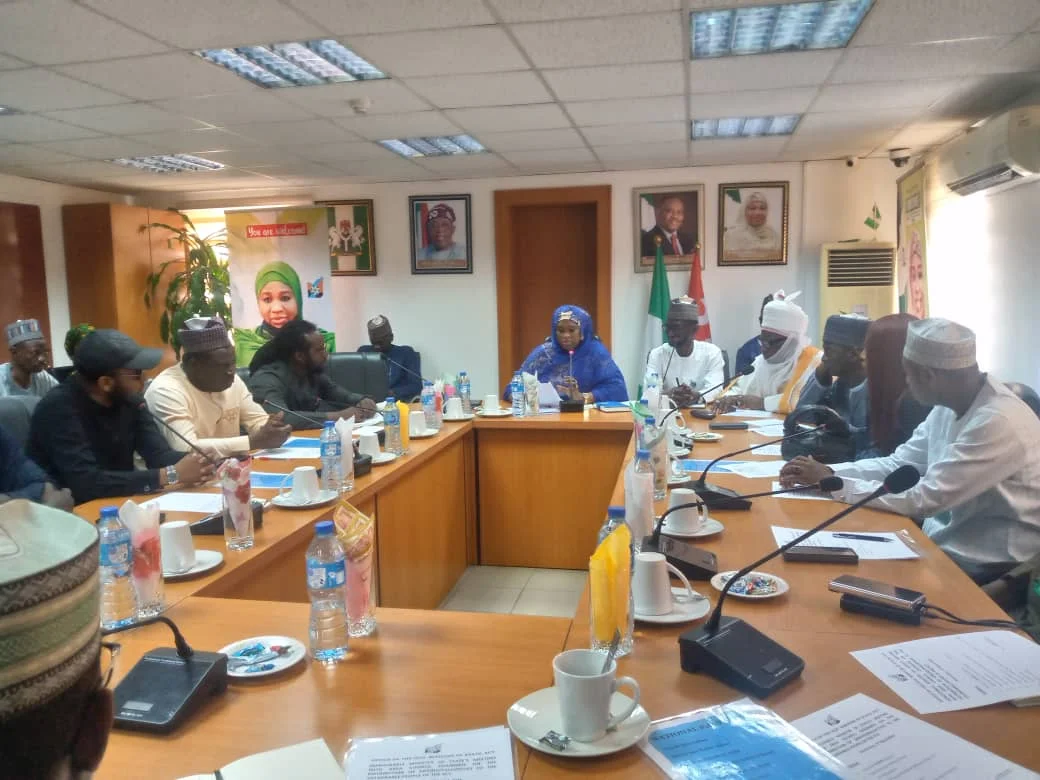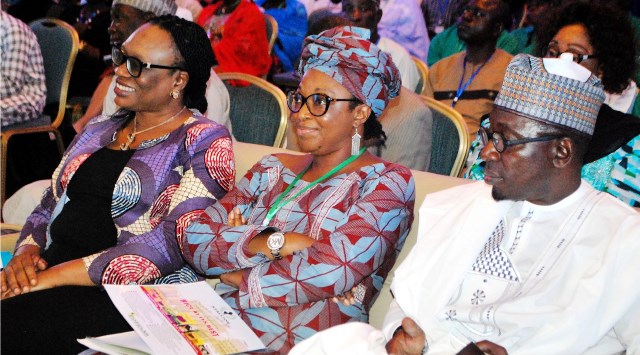Business
Nigeria’s Capital Market In 2015
The Nigerian Capital
Market and its operators made efforts that would have resulted to being the best market in Africa, but for the many economic crises faced by the nation’s economy in 2015.
The capital market in retrospect was saddled with the innovations, the woes and gains which formed the basis of analysts’ judgement of how poor 2015 transaction faired.
This accounted for why the Chief Executive Officer (CEO) of Nigerian Stock Exchange, Mr Oscar Onyema urged retail investors to mitigate investment risks by diversifying portfolios across different asset classes.
Onyema also explained that the capital market was only reacting to the global economic and financial challenges within a well regulated market structure.
The experiences and qualifications of market operators and regulators had little answers to give to the foreign investors whose main concerns were their business gains, rather than the uncertainty.
This also accounted for the flow or movement of more foreign investors out of the Nigerian capital market to other African markets, where they think the stakes are high.
Foreign outflows as at November 30, 2015 according to reports, amounted to N40.73 billion compared with N31.87 billion foreign portfolio managers invested in the same period.
The capital market remained unstable with naira exchanging for more than N230 per dollar through the better part of 2015, as the Central Bank of Nigeria’s (CBN) policies tried in vain to stabilise the naira against the dollar.
The financial market was generally stable for 2014 although noticeable fluctuations were traced toward the end of the year. A number of policy instruments were deployed to achieve price and financial system stability in order to boost investor confidence and reduce concerns about declining foreign exchange reserves.
Some of the policy instruments deployed by CBN include, Monetary Policy Rate (MPR), Open Market Operations (OMO), Discount Window Operations, Cash Reserve Ratio (CRR) and Foreign Exchange Net Open Position (NOP) Limit.
Others are devaluation of Naira, limit on outside spending and the excess control, checks and sledge hammer on bureau de change.
Analysts also attributed the major part of the problem to the 2015 election and change of leadership which brought serious uncertainty especially in the delay of the new president in appointing his ministers.
Investors found it difficult to predict what the economy would look like under the new administration, resulting to market watch instead of investments.
The Director General of securities and Exchange Commission (SEC), Mr Mounir Gwarzo expressed dissatisfaction with the capital market performance in 2015. He said he was unhappy the way the market was which he said was a true reflection of the nation’s economic situation.
Gwarzo said SEC is studying how government can use some fiscal policies to stabilise the market and encourage domestic investors to return to the market.
Market Statistics Of Cap /Index
The SEC DG’s feelings cannot be unconnected with the capital market performance at the end of 2015. Nigerian Stock Exchange records show that as at December 31st, 2015, the All Share Index (ASI) droped by about 17.36 per cent to close negatively at 28,642.25 points, compared with the opening index of 34,657.15 points Also,market capitalisation that opened trading for 2015 at N11.478 trillion, lost N1.63 trillion to close negatively on December 31 at N9.851 trillion.
Bond:
The FMDQ OTC Securities Exchange that promotes transaction in fixed income securities in Nigeria, listed N30 billion Fidelity Bank Bonds, N8 billion Nigeria Mortgage Refinance Company (NMRC) Bonds, N26.0 billion FC MB financing SPV Bonds on its platform.
Innovations
The Nigerian Stock Exchange led by Mr Oscar Onyema however brought landmark innovations to the market during the period under review.
NSE ratified the recapitalisation, the e-dividend system and laid a foundation for de-mutualisation of the 55-year old NSE.
Approval was given for direct cash payment of the proceeds from the sale of securities into an investor’s nominated bank account.
This if well implemented would curb the excess of the stock brokers and reduce to the bearest minimum fraud in the system.
Implementation of the 10 years capital market master plan and inauguration.
SEC also commenced the revival of the National Investor Protection Fund as part of effort to boost investor confidence in the year under review. NIPF concluded a rigorous verification of investors’ claims against Mega Asset Managers Limited and recommended approval of appropriate compensation to the affected investors.
Generally, some financial experts had also expressed their opinions about the outgone year.
The Managing Director, Flexus Solution Investment Limited, Mr Kounougna Henri said CBN should relax some of the monetary policies especially the limit put on spending and devaluation of naira which is not helping the performance of the local currency .
“When too much protocol is put on business policies, it scares investors and makes them move to alternative markets in other countries,” he said.
Chairman, Association of Issuing Houses of Nigeria (AIHN), Mr Victor Ogiemwonyi urged CBN to strive towards the reduction of the Monetary Policy Rate (MPR) to stimulate activities in the bond market.
He said that government’s borrowing rate in the capital market should drop to avoid crowding out of funds and to make the market attractive for private sector to raise funds.
To the Head, research and investment advisory at Meristem, Mr. Basheer Bashir, the current market situation provides attractive buying opportunities for discerning investors.
However, the uncertainty and instability that challenged the capital market in 2015 should not be the final judgement for the market which has the capacity to experience growth pending the ability of stakeholders in the Nigerian economy to relax the policies that have negatively affected the capital market and investors.
Lilian Peters
Business
NCDMB Tasks Media Practitioners On Effective Reportage

Business
FCTA, Others Chart Path To Organic Agriculture Practices

The Federal Capital Territory Administration (FCTA) and other stakeholders have charted path to improved organic agriculture practices nationwide.
At a 2024 national organic and agroecology business summit held recently in Abuja, stakeholders took turn to speak on the additional areas of promoting the practices.
The Mandate Secretary, FCT Agriculture and Rural Development Secretariat (ARDS), Lawan Geidam, advocated for sustainable practice to develop resilient food systems that will benefit people.
The event, with the theme,”Towards Policies for Upscaling Organic Agroecological Businesses in Nigeria”, is aimed at fostering growth in the organic agriculture sector.
Geidam, who was represented by the Acting Director, Agric Services, in the Secretariat, Mr. Ofili Bennett, emphasised the success of organic and agroecological farming, reling on the active involvement of farmers, businesses and consumers.
He reassured attendees that the FCT Administration, led by the Minister, Nyesom Wike, and Minister of State, Dr. Mariya Mahmoud, remains dedicated to supporting initiatives that enhance the livelihood of residents.
Geidam described the partnership between the Secretariat and the organic and Agroecology initiative for a monthly exhibition and sale of organic products in the FCTA premises as a testament to this commitment.
“The ARDS remains committed to driving policies and initiatives that align with national goals and global standards”, Geidam said.
On her part, the Chairperson of Organic and Agroecology Initiative, Mrs. Janet Igho, urged residents to embrace healthy eating habits to sustain a good lifestyle. She stressed the importance of adopting organic practices, highlighting the benefits of going organic, growing organic and consuming organic products.
Igho expressed her optimism regarding the Agricultural Revival Programmes as articulated in President Bola Ahmed Tinubu’s “Renewed Hope Agenda”, which aims at fostering food and nutrition security.
She also extended her gratitude to ARDS for graciously allocating a space in the FCTA premises for the exhibition and sale of organic products, noting that the platform has been effectively used to advance the promotion of organic agriculture in FCT.
Igho outlined several benefits of organic agriculture which includes improved soil health, increased biodiversity, availability nutritious and healthy food and a reduced carbon footprint.
Stakeholders at the summit, underscored the critical need for enhanced private sector involvement and robust capacity building initiatives for farmers.
They highlighted the importance of implementing supportive policies to foster the growth of the organic agriculture sector.
In the light of the significant challenges facing Nigeria’s agricultural landscape, stakeholders decided that organic agricultural practices present sustainable solutions and a pathway for a more resilient and productive farming systems.
The three-day summit featured exhibitions showcasing organic foods, fruits, vegetables and fertilizers, providing an opportunity for residents to better appreciate the benefits of production and consumption of organic agricultural products.
Business
Dangote Refinery Exports PMS to Cameroon

-
Sports2 days ago
Football Panacea For Peace, Creates Good Relationship – LG Boss
-
Nation2 days ago
Senate Summons Wike Over Demolition Of Houses …Set To Investigate FCDA Activities
-
Rivers2 days ago
Diaspora Group Wants Respect For Ogoni Traditional Rulers
-
News2 days ago
Unpaid Arrears: Health Workers Threaten Showdown In Ikwerre LGA
-

 Business2 days ago
Business2 days agoIFAD, VCDP Harp On Rice threshing Machines To Boost Harvest
-

 Featured2 days ago
Featured2 days agoWe’re Working To Improve Quality Of Life Of Rivers People -Fubara …As Taraba Gov Inaugurates 6.55km Okania-Ogbogoro-Mgbaraja Roads Project
-
Sports2 days ago
NBF Announces Olympics Preparation Date
-
Nation2 days ago
Community Organises Civic Reception For LG Boss

